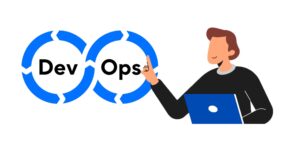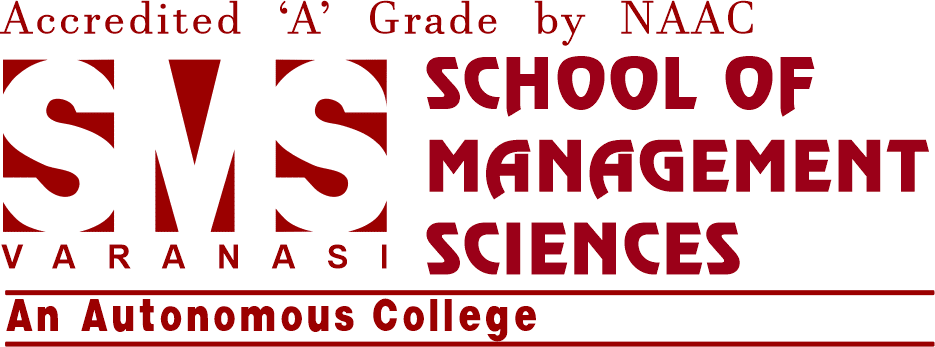
The information technology landscape is in a state of perpetual flux. New technologies emerge, reshape industries, and redefine the skills required for success. For MCA (Master of Computer Applications) graduates, this dynamism presents both challenges and immense opportunities.
By equipping themselves with the knowledge and skills relevant to emerging tech trends, MCA graduates can secure fulfilling careers at the forefront of the IT revolution. Here, we delve into five of the most promising emerging tech trends that hold immense potential for MCA careers:
1. Robotic Process Automation (RPA):

Robotic Process Automation (RPA) is rapidly transforming the way businesses operate. RPA involves using software robots, or “bots,” to automate repetitive, rule-based tasks traditionally performed by humans. These tasks can encompass data entry, form filling, report generation, and even customer service interactions.
RPA bots seamlessly integrate with existing IT systems, mimicking human actions and streamlining workflows.
MCA graduates possess a valuable skillset that makes them well-suited for RPA careers. Their curriculum often includes programming languages like Python or Java, which are widely used in RPA development tools.
Additionally, MCA graduates develop a strong understanding of business processes, allowing them to identify suitable tasks for automation. Their analytical skills are crucial for designing and deploying effective RPA solutions, ensuring these automated processes function seamlessly and deliver the desired outcomes.
The predictions about the future of IT state that the global RPA market is expected to reach a staggering USD 26.9 billion by 2027. This phenomenal growth signifies a burgeoning demand for skilled RPA professionals. By using their programming skills, business process understanding, and analytical abilities, MCA graduates can establish themselves in this high-demand field.
Here’s a roadmap on how to navigate MCA careers in this field:
- Upskilling for Success: Several online and offline courses provide comprehensive training on RPA principles, tools, and methodologies.
- Demonstrate Your Capabilities: Develop a personal project that showcases your understanding of RPA. This could involve automating a personal task or a simple workflow you encounter in your daily life. Building a portfolio that demonstrates your ability to apply RPA principles in a practical setting can significantly enhance your candidacy.
- Network and Connect: Attending industry events and conferences focused on RPA allows you to connect with professionals in the field. This can open doors to potential internship or job opportunities and keep you updated on the latest advancements in RPA technology.
2. Quantum Computing (QC):

The future of IT will certainly be driven by the groundbreaking potential of Quantum Computing (QC). Traditional computers rely on bits (0s and 1s) to store and process information. QC, however, harnesses the principles of quantum mechanics to utilize qubits. These qubits can exist in a superposition of states (both 0 and 1 simultaneously), allowing for a massive leap in processing power for specific problems.
Imagine a computer that can solve problems in minutes that would take traditional computers years or even centuries. This is the promise of Quantum Computing.
While still in its early stages, QC technology holds immense potential for various industries, including finance, materials science, and drug discovery. MCA graduates, with their strong foundation in computer science principles, are well-positioned to contribute to the exciting future of this emerging field.
To carve a path in the domain of Quantum Computing, you should:
- Deepen Your Theoretical Knowledge: Courses in quantum mechanics, quantum algorithms, and quantum information theory will provide a strong foundation for understanding and working with QC technology.
Several online resources and universities now offer specialized courses in QC, making this knowledge more accessible than ever before.
- Focus on Programming Languages: Familiarity with high-performance computing languages like C++ and Python will be beneficial for developing quantum algorithms and simulations. These languages are often used in QC software development tools.
- Stay Updated in a Rapidly Evolving Field: The field of QC is developing rapidly. Actively following research publications, attending conferences, and participating in online communities focused on QC will keep you abreast of the latest advancements and ensure you possess the most relevant skillset for future opportunities.
- Consider Higher Studies: Pursuing a PhD in a related field like quantum computing or quantum information science can open doors to research and development roles in leading institutions and companies at the forefront of QC technology.
3. DevOps:

DevOps stands for Development and Operations and it emphasizes breaking down silos between development and IT operations teams. Traditionally, these teams often function in isolation, leading to delays, inefficiencies, and communication gaps. DevOps fosters a culture of collaboration and continuous improvement, allowing for faster release cycles, improved software quality, and a more efficient overall development process.
MCA graduates, with their well-rounded understanding of both development and application management principles, are ideal candidates for DevOps careers. Their programming skills are crucial for scripting automation tasks and interacting with DevOps tools. Additionally, their knowledge of database systems and their management is essential for ensuring data integrity and smooth application functionality within DevOps workflows.
Also, a strong understanding of networking concepts is necessary for managing infrastructure and ensuring application availability across various platforms. Finally, problem-solving abilities are paramount in the dynamic world of DevOps. DevOps professionals must be adept at troubleshooting issues, identifying bottlenecks, and finding solutions to ensure smooth software delivery and ongoing application maintenance.
If you are interested in MCA careers related to DevOps, you should:
- Upskilling for DevOps Proficiency: Several online and offline courses provide comprehensive training on DevOps principles, tools, and methodologies.
Consider industry-recognized certifications like Certified Kubernetes Administrator (CKA) or AWS Certified DevOps Engineer – Professional to further enhance your profile and demonstrate your expertise to potential employers.
- Showcase Your Skills through Personal Projects: Building a personal project that showcases your DevOps skills is a great way to demonstrate your capabilities to potential employers. This could involve automating a deployment process, setting up a CI/CD pipeline (Continuous Integration and Continuous Delivery), or configuring infrastructure management tools using code (Infrastructure as Code).
A strong portfolio that highlights your practical understanding of DevOps principles will make you a more competitive candidate.
- Embrace Open Source Contribution: Contributing to open-source DevOps projects allows you to gain practical experience, build a strong network within the DevOps community, and showcase your coding abilities to potential employers.
Many open-source DevOps projects welcome contributions from enthusiastic developers, providing valuable learning opportunities and a platform to collaborate with experienced professionals in the field.
The global DevOps market is expected to reach a staggering USD 21.2 billion by 2027. In India, with its booming IT sector and increasing adoption of agile development methodologies, the need for DevOps professionals is on the rise.
Continue to read the article to know about Extended Reality (XR) and AI Project Management here:
Top 5 Emerging Tech Trends For MCA Graduates – Part 2

